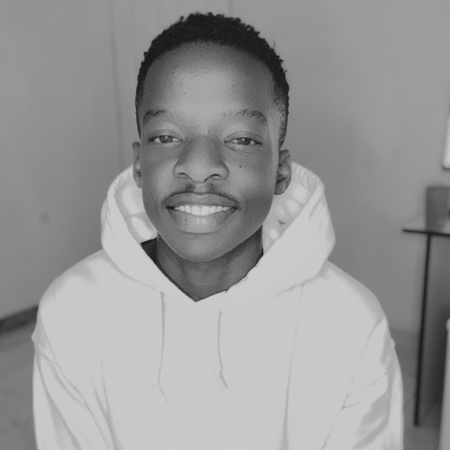Podcasting has exploded in Kenya, with creators like Abel Mutua, Lynn Ngugi, and 3MenArmy Kenya drawing millions of views and shaping national conversations. If you’re inspired by these top podcasters and want to start your own show, one of your first questions is likely: How much does it cost to start a podcast in Kenya? This guide will break down every cost—from barebones setups to professional studios—so you can plan your podcasting journey with confidence.
Key Takeaways
- Budget podcast setup in Kenya costs between Ksh 10,000 – Ksh 25,000
- Mid-range quality equipment ranges from Ksh 25,000 – Ksh 80,000
- Professional studio setups start at Ksh 100,000+
- Monthly recurring costs include internet, hosting, and potentially editing services
- Many successful Kenyan podcasters started simple and upgraded gradually
Table of Contents
- Why Podcasting in Kenya Is Booming
- The Essentials: What Do You Need to Start a Podcast?
- Budget Podcast Setup (Ksh 10,000 – Ksh 25,000)
- Mid-Range Podcast Setup (Ksh 25,000 – Ksh 80,000)
- Professional Podcast Studio Setup (Ksh 100,000+)
- Podcast Setup Services and Outsourcing
- Recurring Costs: What to Budget For Each Month
- Optional Extras and Scaling Up
- How Top Kenyan Podcasters Invest in Their Shows
- Case Study: Budget Breakdown for a New Kenyan Podcast
- Hidden Costs and Legal Considerations
- Tips for Saving Money When Starting Your Podcast
- Monetizing Your Podcast to Offset Costs
- Conclusion: What’s the Real Cost to Start a Podcast in Kenya?
Why Podcasting in Kenya Is Booming
The Kenyan podcasting scene is thriving due to the country’s youthful population, growing internet penetration, and appetite for diverse, authentic content. Podcasts are accessible, affordable to produce, and offer a platform for voices that might not make it to mainstream media. Whether you’re passionate about business, comedy, tech, or storytelling, there’s an audience waiting for you.
The Essentials: What Do You Need to Start a Podcast?
Before diving into costs, let’s clarify the essential components of a podcast setup:
- A recording device (smartphone, computer, or dedicated recorder)
- A microphone (built-in, lapel, USB, or XLR)
- Headphones (for monitoring)
- Audio interface or mixer (optional for higher quality)
- Recording/editing software
- A quiet or treated recording space
- Podcast hosting platform
- Internet connection (for uploads and remote interviews)
Your costs will depend on your ambitions, quality expectations, and whether you go DIY or hire professionals.
Budget Podcast Setup: The Bare Minimum (Ksh 10,000 – Ksh 25,000)
If you’re just starting and want to keep costs low, here’s what you need:
1. Smartphone or Laptop (Already Owned)
Most modern smartphones have decent microphones and recording apps. If you already own a smartphone or laptop, you can start recording audio right away.
2. Lapel or USB Microphone (Ksh 3,000 – Ksh 10,000)
Lapel microphones (clip-on mics) cost Ksh 3,000 – Ksh 5,000 and improve audio quality significantly over built-in mics.
USB microphones like the Fifine or Maono range cost Ksh 5,000 – Ksh 10,000.
3. Headphones (Ksh 2,000 – Ksh 5,000)
Basic closed-back headphones help you monitor your audio while recording.
4. Lighting (Ksh 5,000 – Ksh 10,000)
If you plan to record video for YouTube (as many Kenyan podcasters do), a ring light is essential for clear visuals.
5. Free Recording & Editing Software
Audacity (Windows/Mac/Linux) is free and powerful for audio editing.
GarageBand (Mac) is also free for Apple users.
6. Hosting Platform (Free – Ksh 1,000/month)
Anchor by Spotify offers free hosting and distribution.
Paid plans on platforms like Buzzsprout or Podbean start at Ksh 1,000/month for more features.
Total Budget Setup Estimate:
Ksh 10,000 – Ksh 25,000 (assuming you already own a smartphone or laptop)
Mid-Range Podcast Setup: Better Quality, More Flexibility (Ksh 25,000 – Ksh 80,000)
If you want to stand out with superior audio and video quality, consider upgrading:
1. Entry-Level Audio Interface (Ksh 10,000 – Ksh 20,000)
An audio interface like the Focusrite Scarlett Solo lets you use professional XLR microphones.
2. XLR Microphone (Ksh 10,000 – Ksh 25,000)
Popular options include the Audio-Technica AT2020 or Rode PodMic.
3. Studio Headphones (Ksh 5,000 – Ksh 10,000)
Brands like Audio-Technica, AKG, or Maono offer reliable, comfortable headphones.
4. Acoustic Treatment (Ksh 5,000 – Ksh 15,000)
Invest in foam panels or a portable sound booth to reduce echo and background noise, especially if you’re recording at home.
5. Video Camera or Webcam (Ksh 10,000 – Ksh 30,000)
For video podcasts, a dedicated webcam or entry-level camera improves video quality over a smartphone.
6. Lighting Kit (Ksh 10,000 – Ksh 20,000)
A softbox or LED panel kit elevates your video production.
Total Mid-Range Setup Estimate:
Ksh 25,000 – Ksh 80,000
Professional Podcast Studio Setup (Ksh 100,000+)
If you want to match the quality of Kenya’s biggest podcasts, a professional studio investment pays off:
1. All-in-One Podcast Studio Consoles
- MAONOCASTER All-In-One Podcast Studio: Ksh 38,000
- RØDE Caster Pro: Ksh 89,995
These devices combine audio interfaces, mixers, sound pads, and phone connectivity for a seamless recording experience.
2. Multiple Professional Microphones (Ksh 20,000 – Ksh 50,000 each)
For multi-host or guest shows, invest in several high-quality mics.
3. Studio Monitors (Ksh 20,000+)
For accurate sound editing and playback.
4. Advanced Cameras (Ksh 50,000 – Ksh 200,000)
If you want to record high-quality video podcasts, invest in DSLR or mirrorless cameras.
5. Studio Rental or Build (Ksh 10,000 – Ksh 50,000 per session or more)
Renting a studio in Nairobi costs Ksh 10,000 – Ksh 50,000 per session, including technical support and editing.
Building your own studio with soundproofing and professional lighting can cost hundreds of thousands of shillings.
Professional Setup Estimate:
Ksh 100,000 – Ksh 500,000+ (depending on scale and ambitions)
Podcast Setup Services and Outsourcing
If you want to focus on content and leave the technical work to professionals, several Kenyan companies offer podcast setup and production services:
- Wavelink Networks: Setup assistance, equipment recommendations, and technical support for Ksh 10,000 – Ksh 50,000.
- Janeson Studio: Complete recording, editing, and packaging for Ksh 10,000 – Ksh 50,000 per session.
- SemaBOX: Packages start at Ksh 4,640 per episode (audio) and Ksh 8,120 per episode (video), with higher-end packages for corporate clients.
Ongoing labor charges for editing and uploading range from Ksh 5,000 – Ksh 20,000 per episode, depending on complexity and length.
Recurring Costs: What to Budget For Each Month
- Internet bundles or Wi-Fi: Ksh 2,000 – Ksh 10,000/month (depending on usage and video uploads)
- Podcast hosting: Free – Ksh 1,000/month
- Editing software subscriptions (optional): Ksh 2,000 – Ksh 5,000/month for Adobe Audition, Final Cut Pro, etc.
- Marketing and promotion: Ksh 5,000 – Ksh 20,000/month (ads, social media, influencer partnerships)
- Transport and guest expenses: Varies
Optional Extras and Scaling Up
As your podcast grows, you may want to invest in:
- Website development: Ksh 10,000 – Ksh 50,000 for a professional site
- Branding and graphic design: Ksh 5,000 – Ksh 20,000 for logos, banners, and episode covers
- Merchandise: T-shirts, mugs, or branded gear for fans
- Live event hosting: Venue hire, equipment, and promotion for live podcast recordings
How Top Kenyan Podcasters Invest in Their Shows
The most successful Kenyan podcasters, such as those in the Top 20 ranking, often combine several approaches:
- Start simple, then upgrade: Many begin with basic gear and reinvest earnings into better equipment and production value.
- Leverage video: YouTube is a major platform for Kenyan podcasts. Investing in good cameras and lighting pays off in higher engagement and monetization opportunities.
- Professional editing: Outsourcing editing and production lets creators focus on content and guest booking.
- Studio partnerships: Collaborating with established studios like SemaBOX or Janeson can provide access to professional environments and technical expertise.
Case Study: Budget Breakdown for a New Kenyan Podcast
Scenario:
You want to start a weekly podcast interviewing Nairobi entrepreneurs, aiming for good audio and video quality but keeping costs reasonable.
| Item | Cost (Ksh) |
|---|---|
| USB Microphone (Maono) | 8,000 |
| Closed-back Headphones | 4,000 |
| Ring Light | 7,000 |
| Smartphone (already owned) | 0 |
| Acoustic Foam Panels | 5,000 |
| Free Editing Software | 0 |
| Hosting (Anchor) | 0 |
| Internet Bundles (monthly) | 3,000 |
| Total Initial Setup | 24,000 |
If you want to outsource editing (Ksh 7,000/episode) and record four episodes a month, your monthly recurring cost would be Ksh 28,000.
Hidden Costs and Legal Considerations
- Music licensing: Using copyrighted music can lead to takedowns. Use royalty-free tracks or pay for licensed music (Ksh 2,000 – Ksh 10,000 per track).
- Permits and taxes: As a content creator, you are subject to a 5% withholding tax and must file annual returns.
- Backup and storage: Invest in cloud storage or external drives (Ksh 5,000 – Ksh 20,000) for your audio and video files.
Tips for Saving Money When Starting Your Podcast
- Start with what you have: Use your phone and free software to test your concept before investing heavily.
- Buy used gear: Check local marketplaces for second-hand microphones and audio interfaces.
- Collaborate: Partner with friends or other creators to share equipment and studio space.
- Batch record: Record multiple episodes in one session to save on studio or editing costs.
- DIY editing: Learn basic editing skills to reduce outsourcing expenses.
Monetizing Your Podcast to Offset Costs
Once your podcast gains traction, you can recoup your investment through:
- Sponsorships and ads: Partner with brands relevant to your audience.
- Listener support: Use platforms like Patreon or M-Pesa paybill for fan contributions.
- Merchandise sales: Branded products for loyal fans.
- Live events and workshops: Charge for exclusive content or experiences.
Conclusion: What’s the Real Cost to Start a Podcast in Kenya?
Starting a podcast in Kenya can cost as little as Ksh 10,000 for a basic setup or over Ksh 500,000 for a professional studio experience. Most new podcasters find success with an initial investment of Ksh 20,000 – Ksh 50,000, upgrading as their audience and ambitions grow.
The most important investment is not money, but consistency, creativity, and a willingness to learn. With the right approach, your podcast could be the next big thing in Kenya’s vibrant digital landscape—just like the top creators leading the way in the Top 20 ranking.



